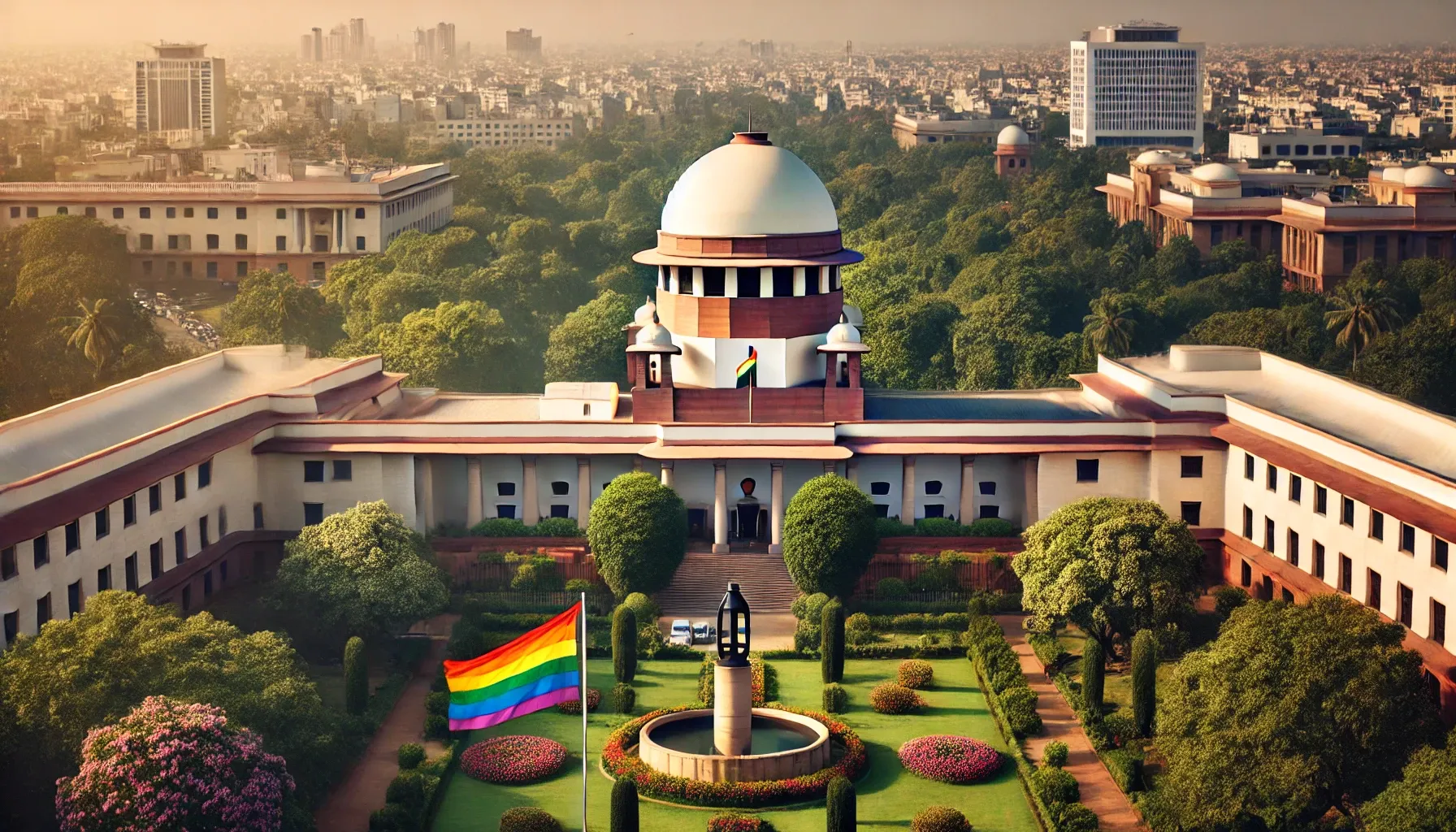The Supreme Court of India, on January 9, 2025, dismissed review petitions challenging its October 2023 verdict, which refused to recognize same-sex marriages. The Court emphasized that marriage equality falls under legislative jurisdiction, reinforcing its earlier stance.

In a significant legal development, the Supreme Court of India has dismissed the review petitions filed against its earlier judgment refusing to recognize same-sex marriages. This ruling underscores the judiciary's deference to the legislature on matters concerning marriage equality and the rights of queer individuals in India.
The decision, delivered on January 9, 2025, highlights the Court's consistency in upholding its earlier stance while acknowledging the complexities surrounding the legal recognition of queer relationships.
New Bench Dismisses Review Petitions
- The review petitions were considered by a bench comprising Justice BR Gavai, Justice Suryakant, Justice BV Nagarathna, Justice PS Narasimha, and Justice Dipankar Datta.
- This bench was reconstituted following the recusal of Justice Sanjiv Khanna in July 2024.
- Justice PS Narasimha was the sole member from the original bench that delivered the October 2023 verdict, as CJI DY Chandrachud, Justices SK Kaul, Ravindra Bhat, and Hima Kohli had since retired.
Review Bench's Observations
- The bench reviewed the judgments of Justice Ravindra Bhat (on behalf of himself and Justice Hima Kohli) and Justice PS Narasimha, which formed the majority opinion in the October 2023 verdict.
- In its dismissal order, the bench stated:
"We do not find any error apparent on the record. We further find that the view expressed in both judgments are in accordance with law and as such no interference is warranted."
October 2023 Judgment Recap
- The Supreme Court, on October 17, 2023, declined to grant legal recognition to same-sex marriages, affirming that this issue falls within the domain of the legislature.
- The Union of India was directed to form a committee to explore the rights and entitlements of queer couples in non-marital relationships.
- The Court unanimously upheld the right of queer couples to cohabit without violence, coercion, or interferencebut refrained from formally recognizing these unions as marriages.
- While CJI DY Chandrachud and Justice SK Kaul supported the right of queer couples to form civil unions, the other judges disagreed.
Arguments in Review Petitions
- The review petitions challenged the verdict, claiming it left queer couples without any legal protection despite acknowledging the discrimination they face.
- Petitioners argued that this amounted to an abdication of the Court's duty to protect fundamental rights.
- They asserted that the judgment was riddled with "errors apparent on the face of the record" and was "self-contradictory and manifestly unjust."
- It was further argued that while the Court recognized the violation of fundamental rights, it failed to prohibit such discrimination.
Implications and Way Forward
- The dismissal of review petitions reinforces the judiciary's stance that the recognition of same-sex marriages is a matter for legislative intervention.
- The ruling underscores the Court's acknowledgment of cohabitation rights for queer couples while leaving the formalization of such relationships to the executive and legislative branches.





